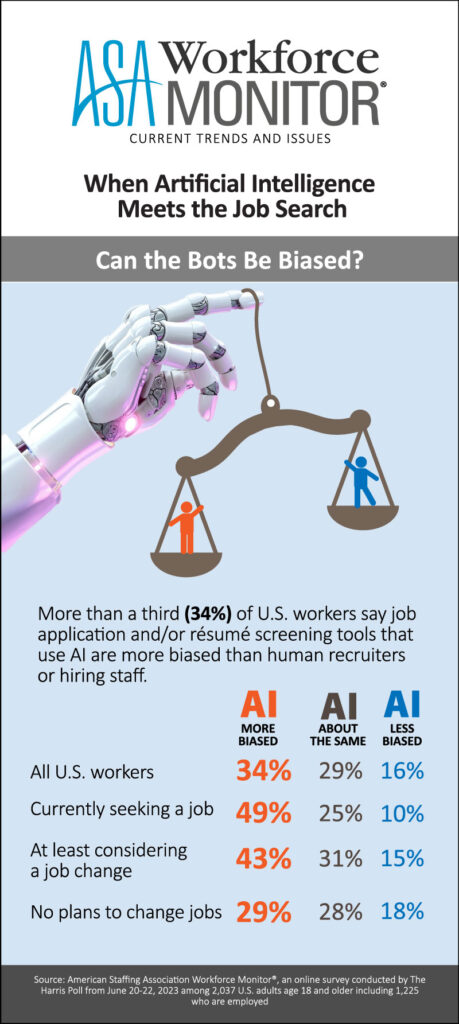Tips For Success
In today’s fast-paced business world, employees across various industries are grappling with expanding workloads and mounting pressure. The current economic climate means that many organizations are forced to do more with less, prompting managers to demand unprecedented levels of efficiency and productivity from their teams. As a result, many employees are struggling to adapt to these heightened expectations.
Research by Development Academy highlights a significant issue: 82% of people don’t use an effective time management system, relying solely on to-do lists or their inboxes. Furthermore, only 20% of people conduct a monthly audit to review how they spend their time, and one in eight employees never feel in control at work.
Mastering workload management is essential to unlocking your full potential in the workplace. It paves the way for career progression, reduces the risk of burnout, and promotes a healthier work-life balance. Here’s how you can manage your workload more effectively.
Step 1: Understanding Your Job Description and Objectives
Effective workload management begins with a clear understanding of your responsibilities and role. In a hectic workplace, it’s easy to lose sight of your primary focus and priorities, including how your performance will be evaluated and monitored. Ideally, your job description and manager should offer valuable insights here.
A well-defined job description sets clear expectations for both the employer and the employee. It outlines core tasks and responsibilities, providing a roadmap for your role within the organization. When in doubt, seek further detail and clarity.
Engage in a conversation with your manager about your responsibilities and how they align with the organization’s broader goals. Ask them to identify the key deliverables they expect from your work and how your performance will be assessed. Understanding your responsibilities and the business’s objectives will help you prioritize tasks that are most valuable to your team, department, and the organization as a whole.
By focusing on tasks that contribute significantly to the company’s success, you’ll build a reputation as a consistent and valuable contributor. If you’re assigned a project that doesn’t seem to align with your role or the organization’s goals, don’t hesitate to ask for more clarity. This demonstrates your commitment to generating measurable results for the company and ensures that your efforts are always directed towards meaningful outcomes.
Step 2: Mastering the Art of Prioritization
Once you understand your company’s objectives and your role, you can identify which tasks on your to-do list are more critical than others. While responding to emails is necessary, it may not be as urgent as completing a task with an impending deadline. Here are some effective strategies to help you prioritize your tasks:
Use the Eisenhower Matrix
The Eisenhower Matrix, or “prioritization matrix,” breaks tasks into four categories:
- Urgent and Important: Tasks that require immediate attention and have significant consequences if not completed promptly. For example, submitting a report before a deadline.
- Important but Not Urgent: Tasks that are crucial for long-term success but do not need immediate attention. For instance, brainstorming for a new project.
- Urgent but Not Important: Tasks that need to be done quickly but do not significantly impact your goals. These can often be delegated.
- Neither Important nor Urgent: Tasks that have little impact on your objectives and can often be eliminated.
By categorizing tasks, you can focus on what truly matters and avoid getting bogged down by less important activities.
Simplify Your Priorities
Starting your day with a lengthy list of tasks can be overwhelming. Set yourself up for success by being realistic about what you can achieve in a single day. One effective method is the 1-3-5 rule:
- One Big Task: Focus on completing one major task that requires significant effort and has a substantial impact.
- Three Medium Tasks: Tackle three tasks that are important but less demanding.
- Five Small Tasks: Complete five smaller, less critical tasks.
This approach helps you stay productive without feeling overwhelmed.
Manage Your Energy, Not Just Your Time
Productivity isn’t just about managing your time; it’s also about managing your energy. People naturally experience fluctuations in their ability to focus throughout the day. Identify your most productive times and schedule your most important tasks during these periods. For example, if you’re most alert in the morning, use that time for high-priority work. Reserve less demanding tasks for when your energy levels dip.
By understanding and managing your energy patterns, you can optimize your productivity and ensure you’re working efficiently throughout the day.
Step 3: Master the Art of Saying No
For many people, saying “no” in the workplace doesn’t come naturally. Most employees want to be seen as team players, ready to go above and beyond whenever a manager assigns an additional task or project. However, consistently saying “yes” to everything can lead to burnout, increased mistakes in essential work, and a decline in overall productivity and efficiency.
Even the most dedicated employee has limitations. We can only accomplish so much within the time available, making it crucial to know when and how to say no. Here’s how to navigate this:
Communicate Openly with Your Supervisor
When assigned a task that you cannot manage due to your current workload, have an honest conversation with your supervisor or manager. Clearly explain why you are unable to take on the extra task, referencing your current responsibilities,
Offer Alternative Solutions
To ensure you maintain a positive impression, propose alternative solutions to the problem. For instance:
- Delegate: Identify other team members who have the necessary skills and bandwidth to handle the task.
- Reprioritize: Suggest putting another less critical task on hold if the new project is both essential and urgent.
Stay Focused on Key Objectives
Understanding your primary responsibilities and the company’s broader goals will help you prioritize tasks effectively. When you have to say no, frame it in the context of ensuring you can continue to deliver high-quality results on the most important projects.
By mastering the art of saying no, you protect your well-being, maintain high performance on critical tasks, and contribute to a more sustainable and productive work environment.
Step 4: Boosting Productivity and Maintaining Focus
According to the American Psychological Association, 20% of people are “chronic procrastinators.” In a fast-paced workplace, where emails, requests, and environmental distractions constantly bombard us, staying focused can be a real challenge. It’s not just the distraction that steals your time but also the energy needed to refocus. Here are some strategies to enhance your productivity and maintain focus:
Utilize Time Management Techniques
Employ time management methods like the Pomodoro Technique or time blocking to ensure you stay focused on specific tasks for set periods. These techniques encourage regular breaks, reducing the risk of “multi-tasking” or switching between different tasks.
Eliminate Common Distractions
- Use Noise-Cancelling Headphones: Block out excess noise in a busy office to improve concentration.
- Activate “Do Not Disturb” Mode: Switch your phone and instant messaging platforms to “do not disturb” when working on complex tasks.
- Close Email Tabs: Consider closing your email tab or setting up an autoresponder message to minimize interruptions.
Optimize Your Workspace
- Maintain a Tidy Desk: A clean and organized workspace can significantly enhance productivity. Remove clutter regularly.
- Invest in Ergonomic Furniture: Ensure your office setup is comfortable and conducive to long periods of work.
- Leverage Natural Light: Position your desk near a window to benefit from natural light, which can improve your concentration and cognitive function.
Take Regular Breaks
Remember that your brain can only focus for so long. Simple strategies like heading outside for fresh air can revitalize your mind. Studies conducted by Washington State University show that spending time in nature can alleviate mental fatigue.
By implementing these strategies, you can create a work environment that minimizes distractions and maximizes productivity, allowing you to focus on what truly matters.
Step 5: Invest in Continuous Learning and Development
In fast-paced environments, workplaces and roles are constantly evolving. Struggling with workload management often stems from working on projects you don’t fully understand or using unfamiliar technology. To stay ahead, focus on continuously developing your skill set through courses, webinars, and online workshops.
Enhance Technical Skills
Stay current with industry trends and technological advancements. For example, becoming proficient with AI-based software can significantly boost your productivity
Develop Soft Skills
Remember the importance of soft skills. Enhancing your communication, critical thinking, and problem-solving abilities can make you more efficient and adaptable in
Demonstrate Commitment to Growth
Actively pursuing continuous learning not only improves your performance but also shows your employer that you’re dedicated to being a valuable team member. Regularly discuss your development needs with your manager during mini-reviews, weekly catch-ups, or one-to-one meetings. Identify the skills and knowledge that will help you enhance your contribution and performance.
By investing in your professional growth, you can better manage your workload, stay competitive in your field, and ensure long-term career success.
Conclusion: Mastering Workload Management
In today’s demanding work environment, the pressure on employees is more intense than ever. According to Asana, 80% of global knowledge workers feel on the verge of burnout. While it’s an employer’s duty to ensure fair task distribution, it’s equally crucial for you to optimize how you manage your time and energy.
Start by thoroughly understanding your responsibilities and aligning them with the organization’s goals. This clarity will help you prioritize tasks effectively. Implement strategies to enhance your focus and minimize distractions, such as time blocking or the Pomodoro technique. Recognize your limits and know when to say no to avoid overcommitting.
If, despite these efforts, you find yourself consistently overwhelmed and unsupported, it may be time to consider a new role within a company that values a balanced approach to work and life. At The Black Diamond Agency, we are dedicated to helping professionals find positions that promote both well-being and career growth.
By mastering workload management, you can unlock your full potential, reduce burnout risks, and achieve a healthier work-life balance. For personalized assistance in finding a role that aligns with your needs, contact The Black Diamond Agency today.











